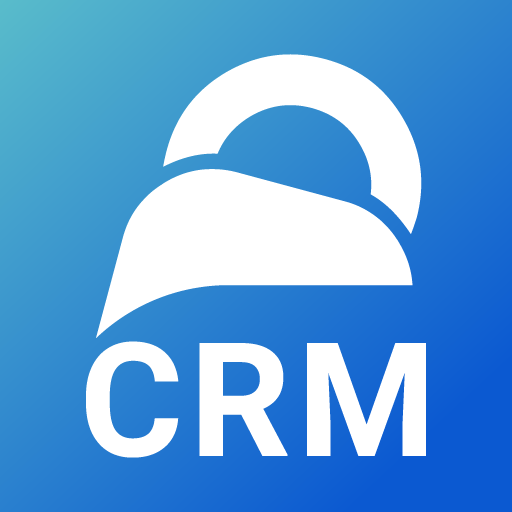Process manufacturing, unlike discrete manufacturing, involves combining ingredients according to specific formulas or recipes to create products that cannot be easily disassembled. This presents unique challenges for businesses, requiring specialized software solutions. Process manufacturing ERP (Enterprise Resource Planning) systems are designed to address these challenges, providing comprehensive tools for managing all aspects of the production process. This guide will explain what process manufacturing ERP is, its key features, benefits, and how to choose the right system for your business.
What is Process Manufacturing?
Process manufacturing is a production method that uses formulas or recipes to combine raw materials and ingredients, often through irreversible processes like mixing, heating, or chemical reactions. The final product cannot be broken down into its original components.
Key Characteristics:
- Formula/Recipe-Based: Production relies on precise formulas and recipes.
- Irreversible Processes: The transformation of raw materials is often irreversible.
- Batch Production: Products are typically produced in batches.
- Variable Yields: The output of the process can vary depending on factors like raw material quality and environmental conditions.
Contrast with Discrete Manufacturing:
Discrete manufacturing, on the other hand, involves assembling distinct parts into a finished product. Examples include assembling cars, computers, or furniture. These products can be disassembled into their original components.
Examples of Process Manufacturing Industries:
- Food and Beverage
- Chemicals
- Pharmaceuticals
- Cosmetics
- Paints and Coatings
- Nutraceuticals
What is Process Manufacturing ERP?
Process manufacturing ERP is a specialized type of ERP software designed to meet the unique needs of process manufacturers. It provides integrated tools for managing all aspects of the business, from formula management and production planning to inventory control, quality assurance, and regulatory compliance.
How it Differs from Generic ERP:
While generic ERP systems can be used by a variety of businesses, process manufacturing ERP offers features specifically tailored to the formula-based production environment. These features are often not found in generic ERP systems, or they may require significant customization.
Key Features of Process Manufacturing ERP
Formula/Recipe Management
This is the core feature of process manufacturing ERP. It allows businesses to:
- Create and manage complex formulas and recipes.
- Define ingredient specifications and quantities.
- Calculate batch sizes and scaling.
- Manage formula versions and revisions.
- Ensure consistency and accuracy in production.
Batch Production Control
Process manufacturing ERP provides tools for planning, scheduling, and tracking production in batches:
- Create and manage batch orders.
- Track batch progress and status.
- Monitor material consumption and yields.
- Manage quality control checks at various stages of production.
Lot Traceability and Tracking
This is crucial for regulatory compliance and quality control:
- Track raw materials and finished goods by lot number.
- Trace the origin and destination of each lot.
- Manage recalls efficiently if necessary.
- Maintain a complete audit trail.
Quality Control
Process manufacturing ERP helps ensure product quality and consistency:
- Define quality control tests and specifications.
- Record test results and track deviations.
- Manage non-conforming materials and products.
- Generate Certificates of Analysis (COAs).
Inventory Management (Specifically for Ingredients)
This goes beyond basic inventory management:
- Track raw materials and ingredients by lot number, expiration date, and other attributes.
- Manage multiple units of measure (e.g., pounds, kilograms, liters).
- Optimize inventory levels to minimize waste and prevent shortages.
- Handle material substitutions.
Compliance Management
Process manufacturing industries are often subject to strict regulations (e.g., FDA, GMP). ERP systems help ensure compliance:
- Maintain audit trails.
- Generate compliance reports.
- Manage documentation.
- Support regulatory requirements.
Costing and Pricing
Accurate costing is essential in process manufacturing:
- Calculate product costs based on formula ingredients, labor, and overhead.
- Track actual costs versus standard costs.
- Determine accurate pricing for finished goods.
Planning and Scheduling
Optimize production schedules to meet demand and minimize costs:
- Forecast demand.
- Plan production based on available resources and capacity.
- Schedule production runs efficiently.
Benefits of Process Manufacturing ERP
Improved Efficiency
Streamline production processes, automate tasks, and reduce manual data entry.
Reduced Costs
Minimize waste, optimize inventory levels, and improve resource utilization.
Enhanced Quality Control
Ensure product consistency, meet quality standards, and reduce the risk of errors.
Better Traceability
Track materials and products throughout the supply chain, enabling faster and more efficient recalls if necessary.
Improved Decision-Making
Access real-time data and insights to make informed decisions about production, inventory, and pricing.
Regulatory Compliance
Meet industry-specific regulations and maintain a complete audit trail.
Choosing the Right Process Manufacturing ERP
Industry-Specific Functionality
Ensure the ERP system offers features specifically designed for your industry (e.g., food and beverage, chemicals, pharmaceuticals).
Scalability
Choose a system that can grow with your business as your needs evolve.
Integration Capabilities
The ERP should integrate seamlessly with your other business systems, such as CRM, accounting software, and laboratory information management systems (LIMS).
Vendor Reputation and Support
Research the vendor’s reputation and the quality of their customer support.
Total Cost of Ownership (TCO)
Consider all costs, including software licensing, implementation, training, and ongoing maintenance. Don’t just focus on the initial price.
Conclusion
Process manufacturing ERP is a critical investment for businesses in formula-based industries. By providing specialized tools for managing complex formulas, tracking batches, ensuring quality control, and meeting regulatory requirements, these systems can significantly improve efficiency, reduce costs, and enhance competitiveness. Choosing the right process manufacturing ERP requires careful consideration of your specific needs and a thorough evaluation of available options.
